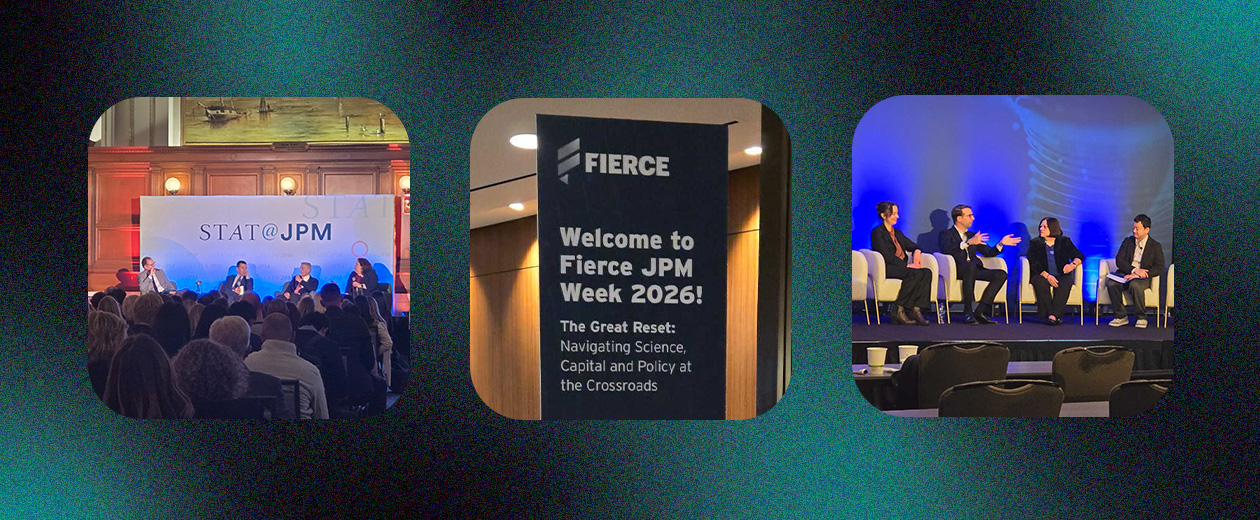
February 2, 2026
February 2, 2026

Reading time
January 7, 2026
January 21, 2024

Late last year, I found some frustrating data about the language used to describe women leaders in performance reviews and in the media. One report found that women receive 22% more feedback about their personality than men do and 30% more exaggerated feedback. Meanwhile, an analysis of media coverage by Cision found that male leaders are most often described as “strong” or “innovative” while women leaders are often described as “young” or “mother.”
This data inspired me to talk more openly about these disparities and my own experience with overly-personal feedback (see my post on being told I give off “New York bitch” vibes in a formal review). This year, I’m taking it a step further by spotlighting women leaders in Mission North’s orbit.
Mission North’s Chief People Officer, Gillian Davis, was a natural choice to kick off this series. She is a successful people leader with unique visibility into areas like career pathing, mentorship and feedback. I sat down with her to chat about her own experiences and what she’s seen in her 20-year HR career. What follows is an edited version of our conversation.
In the 20 years that I’ve been in HR and business, I’ve had a lot of different mentors. The most impactful have been those who instilled the importance of putting others first.
Madeline Albright was my commencement speaker in college, and she ended her speech with the quote: “There's a special place in hell for women who don't help each other.” I've been particularly motivated to help other women as they try to figure out their career paths because that has made such a difference along my own path.
I originally wanted to pursue academia and earn a Ph.D. in anthropology and archeology. I was working as an archeologist and realized the practical implications of that career, like living overseas for half the year, weren’t sustainable for me. A woman named Molly helped me pivot my career. She saw something in me and taught me so much about leading the people function. She guided me through getting a certification in HR, let me shadow her, and was an incredible mentor. We remain friends.
<split-lines>"There’s a real power that comes from the ability to delegate and trust that others can take ownership of things."<split-lines>
I know my answer is similar to many women leaders I’ve spoken with, which is all about delegation. There’s a real power that comes from the ability to delegate and trust that others can take ownership of things. It’s hard for young leaders to grasp that. I certainly went through a period where I didn’t delegate and felt like I needed to power through it all alone. That mindset doesn’t foster growth for either you or your team. Delegating not only frees up your time to focus on strategic priorities and longer-term goals, it also helps your team learn and advance.
I have definitely faced situations where the feedback in a performance review was overly personal. I think people can fall into the trap of playing armchair psychologist in a performance review, giving feedback about personal traits instead of focusing on professional growth opportunities, and that tends to happen more often in women’s reviews. Observationally, I’ve seen people more likely to soften their feedback when it’s directed at men.
I definitely didn’t need a data report to tell me that women are judged differently than their male counterparts. Unfortunately, I’ve seen that in every industry I’ve worked in. Women leaders are expected to be both caretakers and leaders but are punished for both in various ways. Women who are less on the warm and fuzzy side in particular receive unfair feedback, in my experience.
<split-lines>Women leaders are expected to be both caretakers and leaders but are punished for both in various ways<split-lines>
My advice to those providing feedback is to be intentional about consistency. Ask yourself if you’d give the same feedback to another person, for example, a man, if all else was equal. Would you use the same language? It also helps to be aware of the double standards, like women generally getting docked for being direct, as you’re formulating feedback.
<split-lines> Sometimes the real you might not be very popular, but that authentic version of you is actually going to be part of your success. Trying to water down your personality or mold yourself to certain expectations is not going to parlay into a successful outcome <split-lines>
Sometimes the real you might not be very popular, but that authentic version of you is actually going to be part of your success. Trying to water down your personality or mold yourself to certain expectations is not going to parlay into a successful outcome for you because you’re just mimicking. Focus on finding your true self and being as authentic at work as you’re comfortable with. Stay true to your values and surround yourself with mentors who champion your growth.

January 28, 2026
January 28, 2026

January 8, 2026
January 8, 2026